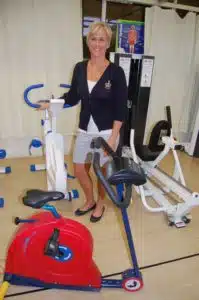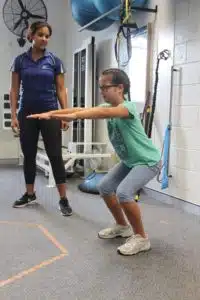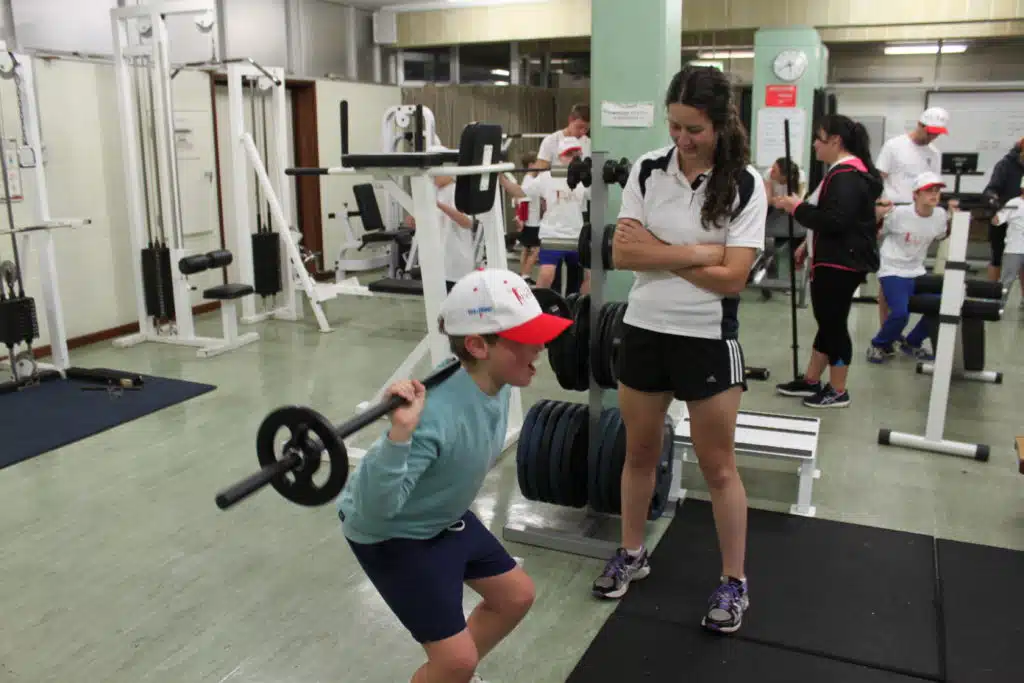Whether kids can catch, throw, and kick a ball with their peers depends on their muscle strength, according to research done at the University of Western Australia.
Bonnie Furzer, an exercise physiologist, studied the skills of children aged between six and 12, ranging from those with poor coordination to highly skilled athletes.

Bonnie Furzer at UWA Paediatric Exercise Laboratory
“We put the kids through their paces in the lab, testing movement skills such as balance, throwing, and catching, along with hypermobility and strength,” says Bonnie, working with the Paediatric Exercise Health Research Group.
“And what we found was that hypermobility made little difference to children’s ability to perform fundamental skills such as catching and throwing. But muscle strength was extremely important.”
Participation in physical activity is crucial for physical, mental, and social development, and between the ages of six and 12 is a key window for intervention because of neural plasticity and development.
Bonnie’s work means children who are not as coordinated as their peers, and who may have avoided physical activity as a result, could improve their motor skills with some strengthening exercises.
Kids do not need a gym membership or any special equipment.

Testing underway at UWA Paediatric Exercise Laboratory
Simple bodyweight exercises, for example push-ups and squats, are enough to start improving muscle strength, and potentially also coordination.
Bonnie hopes that if less-coordinated children can be helped to pick up these fundamental skills earlier, they will find it easier to choose activities they enjoy and be more willing to be active.
Contact: Bonnie Furzer, University of Western Australia, 08 6488 3333, bonnie.furzer@uwa.edu.au





 Fresh Science is on hold for 2022. We will be back in 2023.
Fresh Science is on hold for 2022. We will be back in 2023.